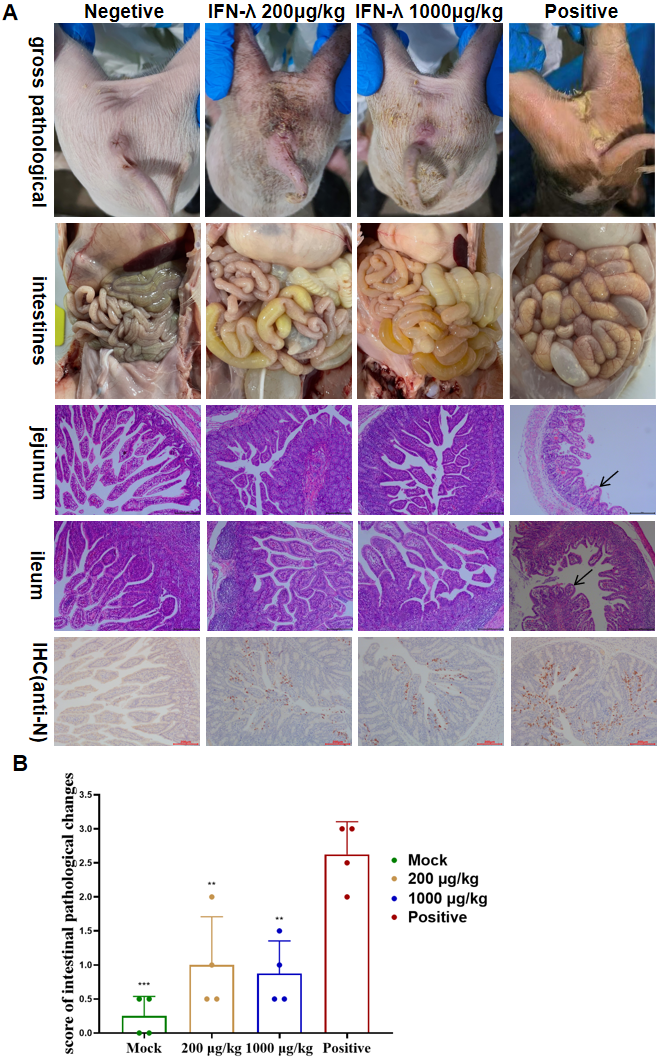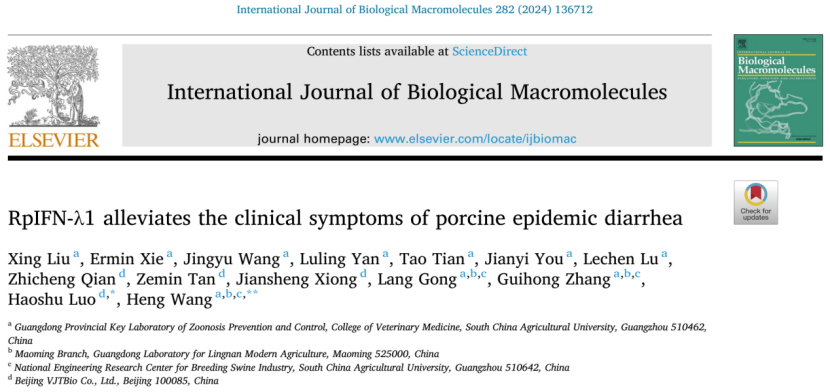
Recently, the paper titled "RpIFN - λ1 alleviates the clinical symptoms of porcine epidemic diarrhea," jointly researched by Associate Professor Wang Heng from the School of Veterinary Medicine, South China Agricultural University, and Professor Luo Haoshu, the founder and chief scientist of VJTBio, was published in the international authoritative journal International Journal of Biological Macromolecules (Int J Biol Macromol). The study found that the recombinant long-acting porcine interferon - λ1 protein expressed by CHO cells can up-regulate interferon-stimulated genes (ISGs) through the JAK - STAT pathway, and has a significant therapeutic effect on porcine epidemic diarrhea (PED).
Porcine epidemic diarrhea (PED) is a pig intestinal infectious disease caused by porcine epidemic diarrhea virus (PEDV), with a mortality rate of up to 100% in piglets within 7 days of age. Surviving piglets may experience anorexia and weight loss, which seriously affects China's pig farming industry. Due to the rapid mutation of PEDV, short disease course after infection, inability of immune piglets to form effective neutralizing antibodies, and the instability of protective antibodies ingested by immunizing sows, there is still a lack of effective vaccines and drugs for the prevention and treatment of PED on the market.

The macroscopic manifestations and histopathological scores of intestinal tissue sections in different treatment groups after piglet challenge
This study molecularly modified natural porcine interferon - λ (IFN - λ), which has the characteristics of broad - spectrum, long - acting, high targeting, and low immunogenicity. In vitro experiments proved its effective antiviral activity against PEDV in Vero E6 and IPI - FX cells. In vivo challenge experiments showed that rpIFN - λ1 alleviated clinical symptoms and intestinal damage, enhanced antioxidant capacity, reduced inflammation, and significantly increased the survival rate of piglets after PEDV infection. Both in vitro and in vivo studies confirmed that rpIFN - λ1 up - regulated interferon - stimulated genes (ISGs) through the JAK - STAT pathway, thereby exerting antiviral effects.
In conclusion, the recombinant long - acting protein rpIFN - λ1 can significantly inhibit the replication of PEDV and alleviate clinical symptoms. Moreover, this variety has the advantage of low cost, solving the pain point and difficulty of high cost limiting the use of natural extracted interferon in agriculture, and has the potential to become an effective and novel antiviral treatment strategy for PEDV. This study was strongly supported by the national "14th Five - Year" key research and development plan project "Drug Target Discovery and New Veterinary Drug Creation".

This research achievement is the best interpretation of new-quality productivity, fully demonstrating that VJTBio, together with top domestic scientific research institutions, jointly promotes the innovation and progress of agricultural biopharmaceutical technology, and is confident in becoming a leader in the development of animal protein antibody innovative drugs.